 We all know the sweet feeling of pulling out a clean, fresh, and dry clothing item from the electric dryer. At that moment when all that freshness and dryness touches your skin, you enjoy this often unrecognized pleasure of life.
We all know the sweet feeling of pulling out a clean, fresh, and dry clothing item from the electric dryer. At that moment when all that freshness and dryness touches your skin, you enjoy this often unrecognized pleasure of life.
The only thing that can stand in the way of experiencing this each day is a faulty dryer outlet.
An electric dryer is a tough machine, and it often demands much power. Hence, the ideal outlet to provide enough power for this equipment must be a 240V and 110V outlet. The 240V supplies enough electrical power to heat the dryer and get it working at full capacity. Then the 110V supplies electricity to control the timers in the dryer. So, you see a good 240V and 110V dryer outlet ensures your safety while providing power to the dryer.
Can a dryer outlet be fixed?
Sure! But a replacement is much cheaper and safer than trying to fix a faulty outlet. Here is how you can install a dryer outlet.
- Take precautions
Before beginning any electrical work (no matter how small you think it is) you should turn off the power. Electrical hazards and accidents can be avoided by doing this. If you don’t know which circuit services that area or outlet, you can switch off power to the entire house instead. - Unscrew the receptacle
The receptacle is largely represented by the white faceplate. Remove the faulty receptacle from the wall by unscrewing any screw you find on the faceplate. There are usually two on opposite sides of the faceplate. When the screws are taken out, you can easily pull the receptacle from the wall but you should do this with care and little force because the receptacle will remain connected to the wires in the wall. Set the screws aside for later use.Next, unscrew the terminals with a right-sized screwdriver. A small screwdriver should work best for this. When the terminals have been unscrewed the entire outlet can be pulled from the wall easily.
- Replacing the outlet
It is advisable to purchase an outlet in a similar size and shape to the one you need to remove. This makes it easier to install the new dryer outlet without having to change the size of the hole.Feed the cable through the cable grip in the wall, then tighten the gripping screws to hold it in place. Don’t clamp the bare metal of the cable. Ensure you clamp only the insulated part.
- Wiring
Strip the wire using a razor knife or a cutting tool. Connect the grounding wire to the green screw and the neutral white wire to the terminal. Connect the red and black wires to the other terminals. Now that this is done. Look at the setup to ensure that the wires are tucked nicely and neatly. Push the wires into the box and screw the receptacle back in with the faceplate.
Test the new dryer outlet. If you encounter any problems or cannot do this yourself, don’t hesitate to call an electrician.





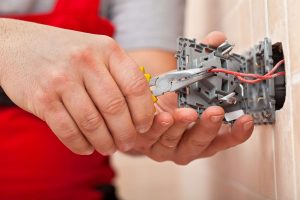 Home wiring is something many homeowners often forget to consider with other home maintenance issues. This is not strange because home electrical wiring is usually tucked away behind the walls. Hence, as long as your outlets work and the lights come on, you won’t be thinking about the wiring behind it all.
Home wiring is something many homeowners often forget to consider with other home maintenance issues. This is not strange because home electrical wiring is usually tucked away behind the walls. Hence, as long as your outlets work and the lights come on, you won’t be thinking about the wiring behind it all. 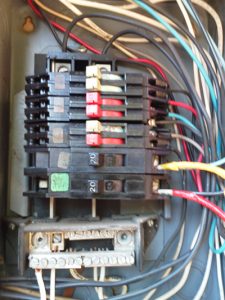 Electrical panels service homes and buildings by providing and controlling power. It is vital that such an important electrical appliance is safe and dependable. When this is not the case, homes and buildings can run into several electrical based problems that range from inefficient electricity supply to fires, electric shocks, and more.
Electrical panels service homes and buildings by providing and controlling power. It is vital that such an important electrical appliance is safe and dependable. When this is not the case, homes and buildings can run into several electrical based problems that range from inefficient electricity supply to fires, electric shocks, and more. 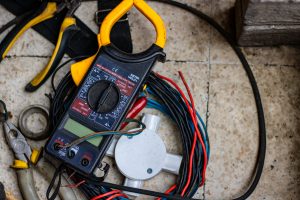 Rewiring is one of the most difficult, messy, and disruptive maintenance projects you can perform in the home. It is equally time-consuming and costly but very necessary. The lifespan of the electrical installation in a home is usually 25 years. However, this duration can vary depending on use. The electrical system will have to be inspected every 10 years if it is in a privately owned property or every 5 years for a rented property. This inspection guarantees electrical safety.
Rewiring is one of the most difficult, messy, and disruptive maintenance projects you can perform in the home. It is equally time-consuming and costly but very necessary. The lifespan of the electrical installation in a home is usually 25 years. However, this duration can vary depending on use. The electrical system will have to be inspected every 10 years if it is in a privately owned property or every 5 years for a rented property. This inspection guarantees electrical safety.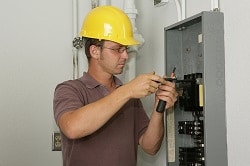 The words ‘electrical contractor and electrician’ are often used interchangeably. Many people do not know the difference between both but assume they mean the same thing. In this article, we will discuss what an electrical contractor does and how they are different from an electrician.
The words ‘electrical contractor and electrician’ are often used interchangeably. Many people do not know the difference between both but assume they mean the same thing. In this article, we will discuss what an electrical contractor does and how they are different from an electrician. 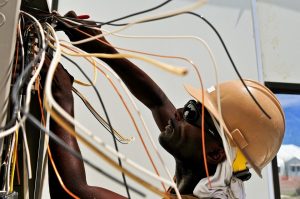 A large number of house fires are attributed to faulty wiring.
A large number of house fires are attributed to faulty wiring. 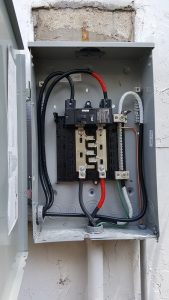 Panel upgrades are large projects. They require the expertise of a professional electrician and a good investment in funds. The electrical panels of a home contribute to its overall efficiency. In this modern age, we all rely so much on power to complete day-to-day activities. This power is distributed by the electrical panel of a home or building.
Panel upgrades are large projects. They require the expertise of a professional electrician and a good investment in funds. The electrical panels of a home contribute to its overall efficiency. In this modern age, we all rely so much on power to complete day-to-day activities. This power is distributed by the electrical panel of a home or building. 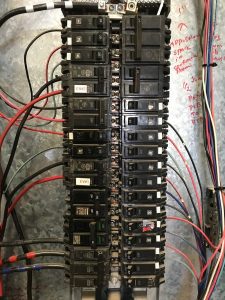
 Lighting is the use of light for aesthetic or practical effects. There’s the need for adequate lighting all around us. Lighting can be from natural or artificial light sources. However, during most hours of the day, daylight is used to illuminate buildings.
Lighting is the use of light for aesthetic or practical effects. There’s the need for adequate lighting all around us. Lighting can be from natural or artificial light sources. However, during most hours of the day, daylight is used to illuminate buildings.